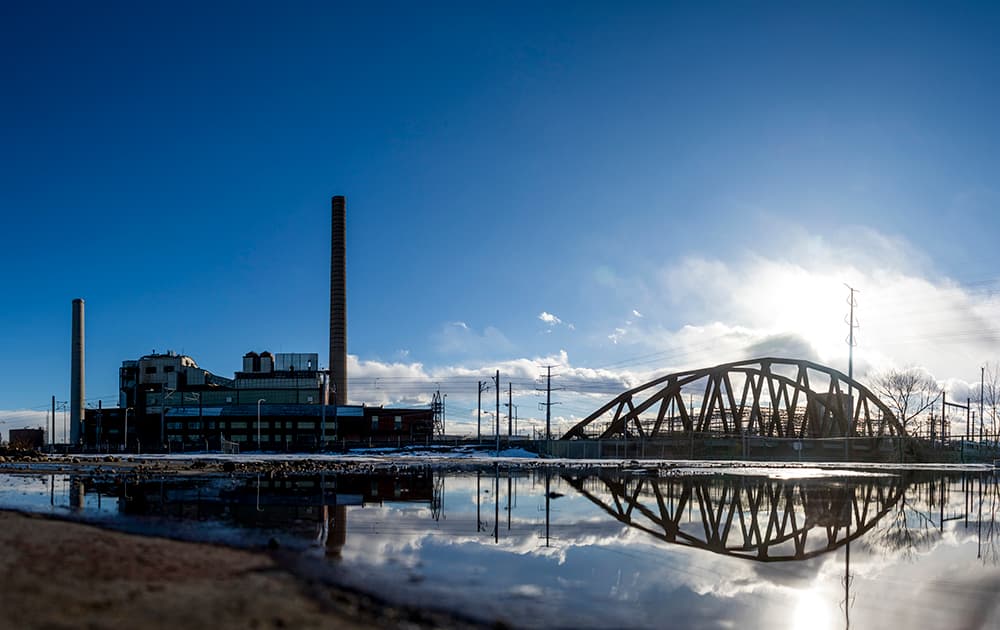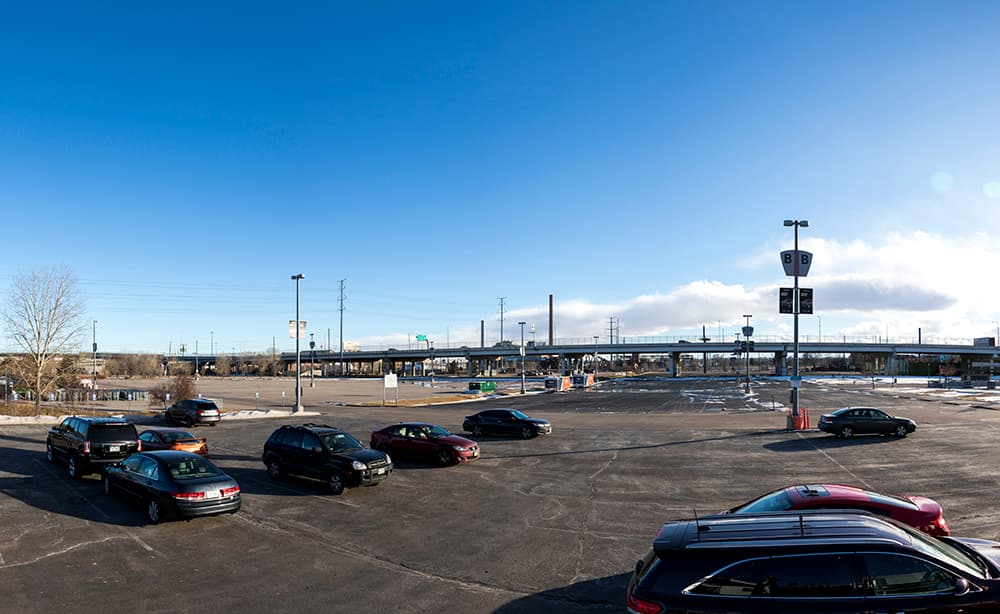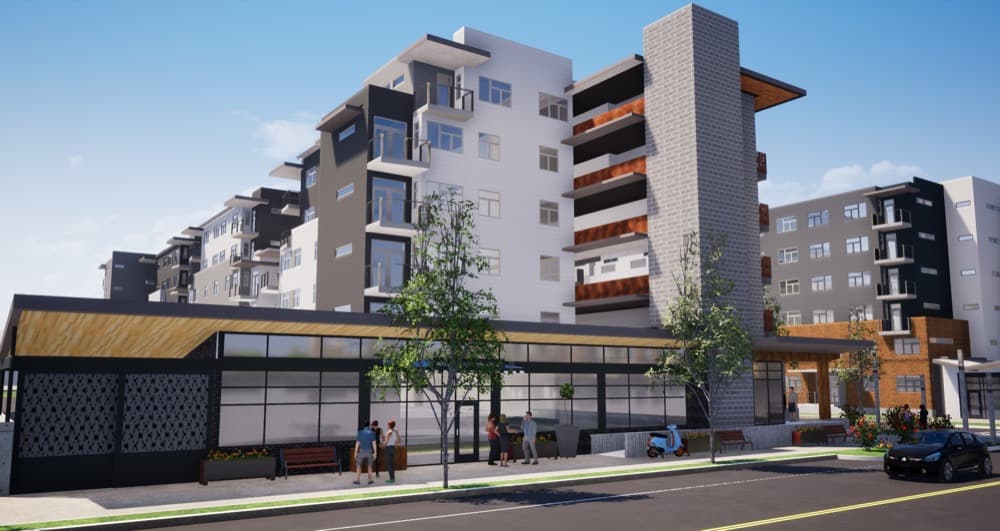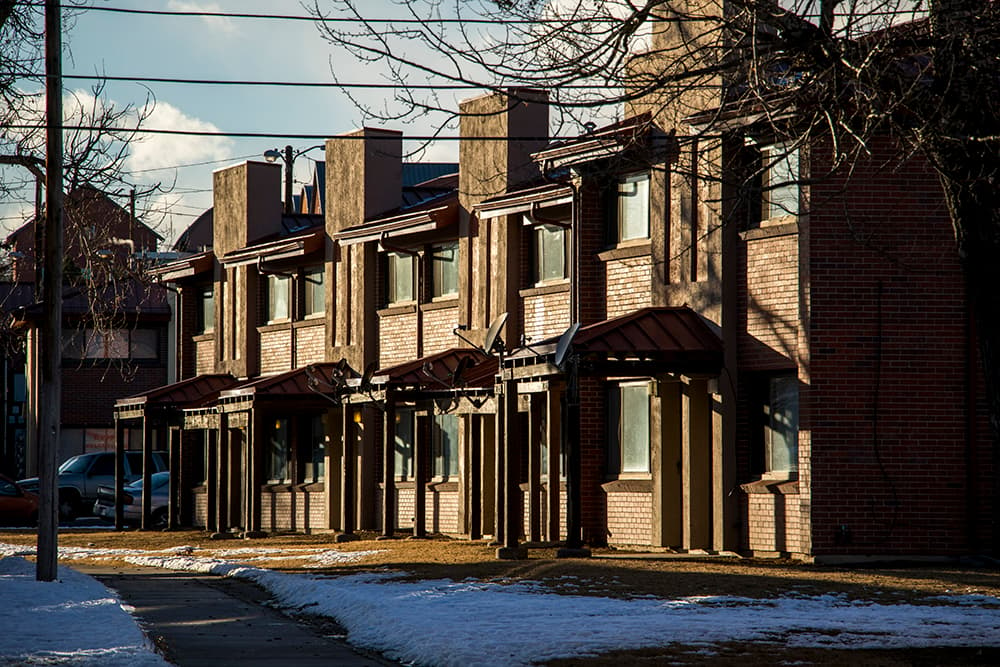
Meow Wolf kicked off 2018 with plans to invest roughly $50 million just outside of Sun Valley's borders, but the nationally acclaimed art attraction is small potatoes relative to the Denver Housing Authority's plans for the neighborhood.
DHA anticipates kicking off construction on the first two phases of its $240 million investment in Sun Valley later this year. The real estate community is watching and some predict that the historically low-income, diverse neighborhood west of Interstate 25 will not experience quite the same transformation seen in rapidly gentrified areas of Five Points and elsewhere.
In fact, Denver Housing Authority officials talk about Sun Valley looking more like the renovated Mariposa District than RiNo, when all is said and done.
DHA and the Sun Valley EcoDistrict are serving as both vertical and master developers for the entire Sun Valley neighborhood, said Ryan Tobin, director of real estate development for the authority tasked with managing and building Denver's affordable housing stock.
The organizations are working with the Denver Metropolitan Football Stadium District and Xcel Energy to better use underutilized facilities as well as the parking lots near Mile High Stadium.
DHA plans to demolish and replace the 333 housing units near West 10th Avenue and Decatur Street with 750 new, mixed-income housing units. Roughly 20 percent of the new units will be market-rate, and 80 percent will be affordable to people earning 60 percent of area median income or less.
Construction on the first phase of the project, an eight-story, 130-unit building near Decatur Street and West 13th Avenue, is expected to start in September. Shortly after, work on two six-story building at 10th Avenue and Decatur Street is expected to start in December. Phase two is expected to include 185 units.

West 13th Avenue is planned to be realigned and connected to Federal Boulevard to the west as part of the project. Work on the street could start in late 2018. In the years ahead, the infrastructure package would create nine city blocks — five of them could be available for private investment, Tobin said.
"The private market is anxiously waiting in anticipation of what the housing authority provides. We have huge infrastructure component to the overall transformation of this neighborhood and through that infrastructure component of what we're doing, that's going to create the future zone lots for private sector investment," Tobin said.
Total public and private investment over the next decade is expected to be in the $500 million to $600 million range, city and housing authority officials predict.

Meow Wolf is not waiting to see what happens in Sun Valley. The art collective out of Santa Fe, New Mexico, announced plans Jan. 4 to scratch out a new 2-acre spot near the tip of Zuni Street, west of the South Platte River. Construction on the site is expected to start later this year and wrap up in 2020. About 700 feet away from the site, Urban Ventures LLC recently redeveloped the first phase of the 3.2-acred mixed-use STEAM on the Platte project. The 65,000-square-foot, three-story building is being leased to Nimbl and other area companies.
The addition of a trendy art space and converted warehouse might sound like a page from RiNo's story.
But a Denver real estate expert does not foresee Sun Valley experiencing the same changes.
"I just don't see that happening because there are just no big chunks of dirt to be able to put housing on down there," said Murray Platt, first vice president with CBRE Industrial and Logistics Services in Denver.
"There isn't anything like that in Sun Valley where someone can come down and buy a big piece of ground — even five acres — and put residential there. There's nothing other than the Robinson Dairy site that can accommodate that size," Platt said.
The former Robinson Dairy site at 2401 W. Sixth Ave. is under contract with Central Development, according to CBRE. It's unclear what the Denver-based development firm plans to do with the nearly 3-acre site west of the South Platte River, and the company could not immediately be reached for this story.
The warehouses and other areas that might be ripe for redevelopment are expensive for developers to snatch up.
"The area is very well utilized from an industrial perspective. Prices for older, not very functional buildings are very strong because of highway visibility and because of great access via Eighth Avenue. It's just an older section of town with older industrial buildings which continue to bring value to property owners," Platt said.
Since 2015, 10 industrial properties and two land parcels have sold in Sun Valley. The average price per square foot for the industrials sales was $104.60, according to CoStar Realty Information Inc. On average, the buildings were able to fetch higher prices and were less often vacant than industrial properties in the overall Denver metro area, according to CBRE.

Lisa Saenz lives in the community, serves as vice president of the Sun Valley Community Coalition and works as a community coordinator for DHA. She said she feels confident about the future of Sun Valley since her community was able to be involved with the planning process.
"I just think when its done it's going to be the best neighborhood in the city.
That’s what I’m hoping for," Saenz said. "It's going to more alive and look like the rest of city not so isolated and desolate. It's going to be nice."
Want more Denver news? Subscribe to Denverite’s newsletter here bit.ly/DailyDenverite.
Business & data reporter Adrian D. Garcia can be reached via email at [email protected] or twitter.com/adriandgarcia.











